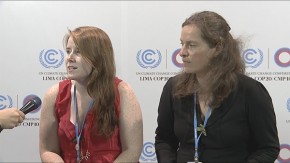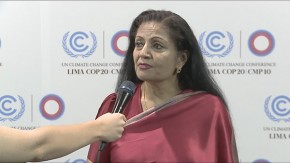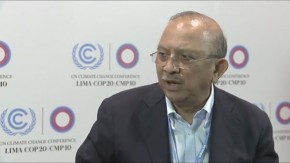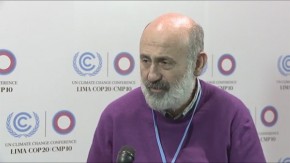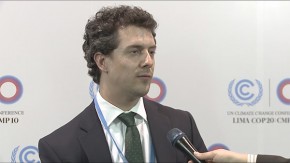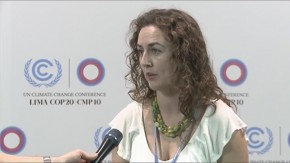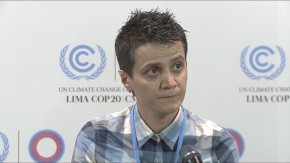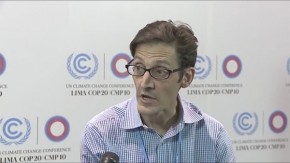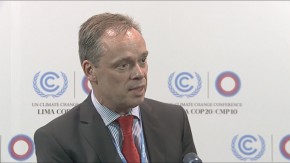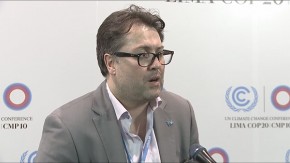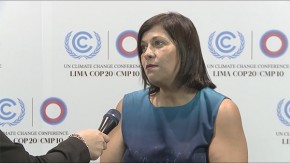COP20 (09/12/14) – Burns explains that women’s rights is also a human rights issue. Not solving climate change is a human rights issue, that disproportionately affects women. She hopes that the Lima gender work program will result in better implementation of gender policies but argues that one should not over celebrate the mainstreaming of gender into the climate agreement if there is no just and effective climate agreement. Finally she mentions the disconnect in the UNFCCC process between civil society attendance and their ability to influence the process. Gender solutions that are working on the ground have not been adequately reflected in the discussions.
Bock discusses the work WECF are doing in Georgia, where they are implementing a gender sensitive National Appropriate Mitigation Activities (NAMAs) which focuses on solar energy. NAMAS are a good concept because they look at co-benefits and can be easily upscaled.
